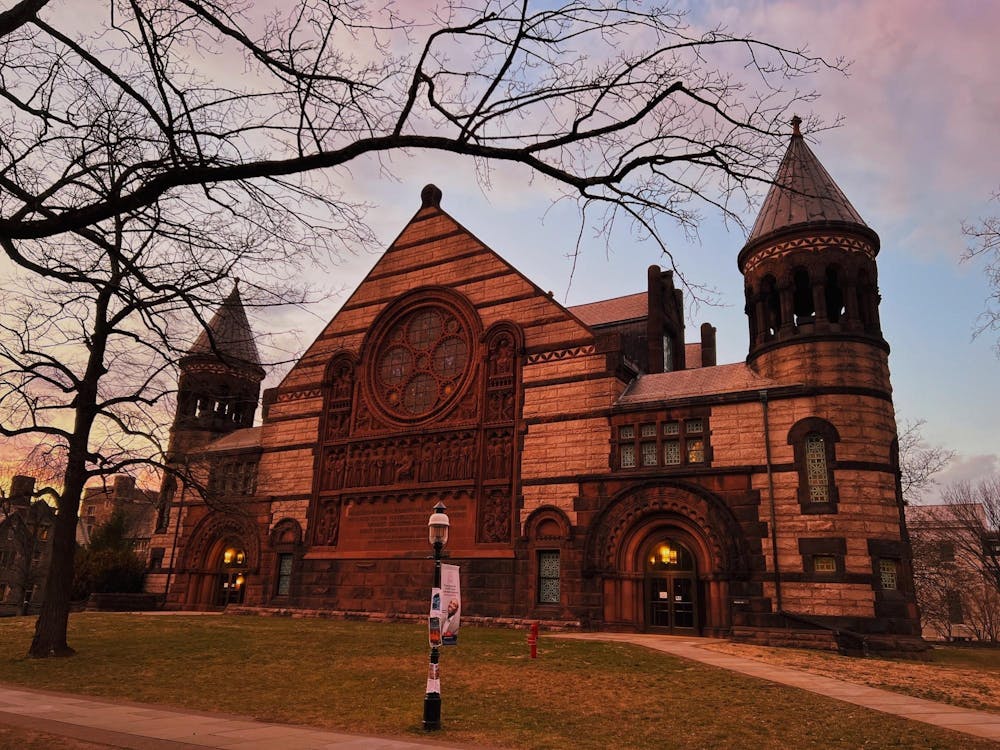As first-years lined up outside Richardson Auditorium to hear President Christopher Eisgruber ’83 and Vice President Rochelle Calhoun speak about the importance of maintaining open dialogue on campus, older students stood outside and handed them pieces of paper with QR codes that linked to a PDF of the “Princeton Disorientation Guide 2024.” This document explains that “protest theory” teaches us how to build moral authority in two ways: by “increasing the number of people and increasing the sacrifice of the participants.”
This short claim demonstrates well the extent of the wrongness and impropriety that self-proclaimed “leftists” associated with the Princeton Progressive Coalition bring not only to interactions with their peers, but with the University itself. After all, since when has morality been determined by crowd behavior? What ever happened to being right?
The aforementioned guide promises to “dispel the propaganda that Princeton disseminates” and purports to be a revelatory tool, unmasking the truth behind the University’s lies. Entering college (and perhaps most of one’s time there) should be a time of openness, with curiosity serving as a guiding principle, but as the authors of the “Disorientation Guide” would have it, everything is already known. And what we know is this: Princeton wants to silence and hurt us, and it’s our job to make sure that doesn’t happen.
Identified only by the list of contributing organizations, the anonymous authors present themselves as the knowledgeable subjects of a wicked regime, who can help young students eke out an ethical path at an institution which intends nothing but the worst. It’s irresponsible for upperclass students to spread a lie that consuming the resources of the University is amoral without additional posturing or political resolve. Moreover, the guide attempts to popularize a troubling attitude that presence in an institution like Princeton is inherently antagonistic, the purpose of which is to not learn, but win. As students, this is not the feeling that we should attempt to inculcate in our peers.
Viewing Princeton as, unequivocally, the big bad wolf allows the guide to claim a multitude of problems that do not exist. University “abuses,” for example, against graduate students are said to occur in absence of graduate union power. What it doesn’t tell us, however, is that graduate students actually voted on unionization: it failed. But the reality of the graduate student experience — with the actual workers themselves deciding that unionization would not support their labor — doesn’t fit with the narrative that the Coalition seeks to promote. Thus, they ignore the facts in order to maintain positionality as oppressed classes.
The rhetorical demand that students maintain a downtrodden character is present throughout the guide. Page 10 declares, “REMEMBER: PSAFE IS NEVER YOUR FRIEND!” Public Safety (PSAFE) at Princeton, apparently, is always out to get you, unjustly punishing those who “break a rule.” This is a reckless statement to preach to young students, who unfortunately may need the safety and protection PSAFE provides. When it comes to individual safety, universal decisiveness is out of touch and serves an ideal of persecution rather than care for one’s peers.
There’s a little more room for nuance in the eating club section, where we learn that “you are not necessarily a bad person if you’re a member of an eating club.” Freshmen are told here to judge their peers, who perpetuate “social stratification” via Bicker, and learn that it’s only acceptable to be in a sign-in club if one has a superfluous moral justification for doing so. How can it be defensible, then, to come to Princeton in the first place, which in practice perpetuates social and class-based hierarchies to a far greater extent?
Ultimately, the guide seeks to encourage students to leave their role as students behind. As activists, they ask, “Is being confined to a playpen of student events and listserv emails the standard of organizing we should strive for?” Presumably hoping readers will answer no, they simultaneously reject the framework of the University while actively choosing to be sheltered within it.

Advocating for change can be useful, and Princeton has certainly improved the education it offers to students and quality of life experienced by staff as a result of external pressure. It’s a result of student work that Princeton has a program in Asian American Studies, and strikes have helped to raise staff wages when they were uncompetitive. But these shifts didn’t come about only because someone did enough activism to force a transformation; good change doesn’t necessitate disrupting the system.
The Disorientation Guide tells freshmen that Princeton is oppressive and asks them “how do we resist?” It is this framework that presents the most unhelpful attitude towards the life and purpose of a student. It teaches that desire to create disruptive change, and preoccupation with taking on the seemingly noble title of troublemaker and activist, can outweigh actually finding out what merits change. Instead of telling students to carefully look at and examine the world in which they find themselves, these authors simply want to ensure that power can never be cooperated with. It’s the fight itself that matters, apparently, not the justice of the cause.
The Princeton Progressive Coalition wants first-years to “cultivate a community of dissent.” But what this charge really asks is to submit rational coherency to groupthink. Rather, we must cultivate a community that values accuracy over opposition. Why else come to college?
Abigail Rabieh is a senior in the history department from Cambridge, Mass. She is the public editor at the ‘Prince’ and can be reached via email at arabieh[at]princeton.edu or on X at @AbigailRabieh.









